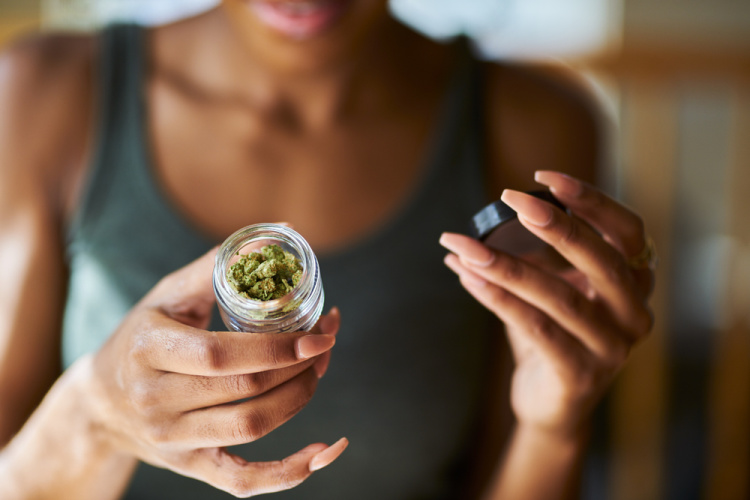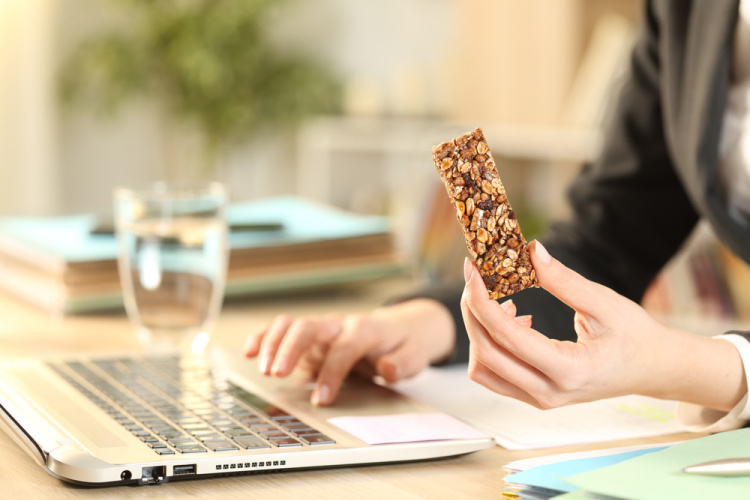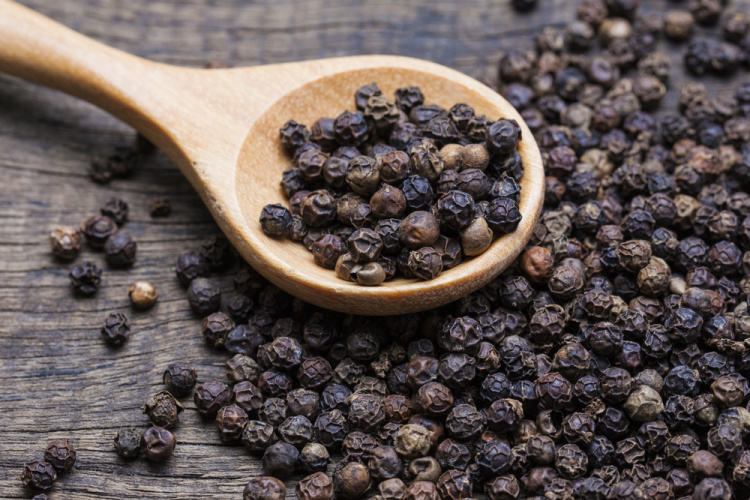Here at Green Goods, we’re thrilled by the continual advances in cannabis research. Seemingly every week, we find (and share!) news on how scientists are discovering new ways for the compounds in cannabis to change lives for the better (as well as allowing a safe, all-natural way to kick back and relax with friends and family).
But all that said, there can be too much of a good thing, and accidentally ingesting too much cannabis can be an uncomfortable experience.
What are the symptoms of being too high? They might include paranoia, dry mouth and eyes, and nausea, among other signs. But here’s the good news: While it might not feel great, being too high is rarely dangerous. In the interest of helping you out of a potential jam, in today’s post we’ll share a few of the best things to do when high just isn’t what you want to be!
What Happens When You Get Too High?
Cannabis affects us all differently based on a number of factors, including our personal physiology, the cannabinoid ratio and content, and the consumption method. And because there are so many variables, many consumers have felt too high at one point or another.
So you may have landed here wondering how to get rid of a high. To answer that question, we first need to understand the mechanics and symptoms of being too high. As you likely know from visiting our cannabis blog, while the cannabis plant contains hundreds of active compounds, the one most directly responsible for causing the “high” is the cannabinoid THC.
Cannabinoids interface with our body through a network called the endocannabinoid system, or “ECS.” It’s one of the body’s most crucial regulatory systems, helping to modulate memory and learning, sleep, and immune response, among other vital functions. But how THC reaches the ECS makes a big difference in terms of its potency and how we experience it.
When we consume cannabis edibles, for instance, the liver converts roughly 50% of the THC into a more powerful form called 11-hydroxy-THC. According to some researchers, 11-hydroxy-THC can be two to three times as potent as THC, meaning that it’s far easier to have more than you intended.
Even smoked or vaped cannabis can be far stronger than you expect. Cannabis concentrates—often consumed via a specialized “dab rig” or in a wax pen—commonly contain THC percentages reaching the 90% range. If you’re unfamiliar with these high-potency products, it’s all too easy to have more than you intended.
What happens when you get too high? Some of the most common physical and psychological symptoms include:
- Dizziness
- Dry or red eyes
- Fatigue or lethargy
- Headache
- Increased heart rate
- Nausea or vomiting
- Extreme thirstiness or dry mouth (aka “cotton mouth”)
- Anxiety or racing thoughts
- Confusion
- Difficulty concentrating
- Rapid mood changes
What’s important to know is that while these symptoms can indeed feel uncomfortable, in the vast majority of cases they subside within a few minutes or hours. With that in mind, here are a few of the best things to do when too high (and how to prevent it from happening in the first place).
Before You Begin: Know Your Dosage
The best way to avoid getting too high in the first place, or to avoid it happening again in the future, is to figure out what dosage works best for your body.
Unlike with pharmaceuticals, there’s no “recommended dosage” with cannabis. This means that it’s up to you to figure out what dosage works best for you. If you’re working with a cannabis edible or tincture, it’s easy to calculate dosage, as they’re typically measured by the item (such as a gummy or a mint) or by the dropper (or fraction).

If you’re working with smoked or vaped cannabis, it gets a little fuzzier. The actual amounts consumed vary widely, depending on the potency of the product you’re inhaling, how long you inhale for, and how deeply you inhale, for example. Some vape pens offer metered dosing, so you can more reliably gauge how much you’re consuming. When smoking, you can make an educated guess by weighing the flower you’ll be using and calculating the total THC content.
Always pay attention to the packaging on cannabis products. The number one thing you can do in avoiding overconsumption is to be familiar with the potency of the product you are using and plan accordingly. While strains can vary in potency depending on their source, the label that comes with your cannabis product is your best means of determining your intake of THC.
Especially if you’re new to cannabis, start with a low dosage and give yourself ample time to gauge the effects before consuming more: at least 15 minutes when inhaling, an hour with sublingual tinctures and 1-2 hours with cannabis edibles, for example.
Too High? Refocus with Relaxation
For those who’ve consumed too much THC and are wondering how to get rid of a high, hope is not lost. There are many factors that can mitigate any unpleasant sensations. You can gently bring yourself out of uncomfortable feelings by focusing your attention on self-care and relaxation. Here are a few soothing activities you might try.

Drink Some Water
Hydration is an important part of foundation health and well-being, and having a drink of water is an easy way to give yourself some self-care while also tackling any dry-mouth you might be experiencing, too! For some additional soothing, make it a hot beverage like an herbal caffeine-free tea or hot cocoa.
Take a Hot Shower
Cannabis, and specifically THC, does modulate your body’s temperature control, and an excess of THC may leave you feeling chilly. A hot shower can help warm you up, with the added benefit of being soothing.
Have Something to Eat
It’s also known that consuming edible cannabis on an empty stomach can amplify its effects. That’s why having something to eat before (and after) edible cannabis consumption can help dampen the effects.
Try Terpenes
Two commonly used home remedies for being too high are black pepper and lemon. Why? Cannabis plants, like many plants and even some insects, produce flavor and aroma compounds known as terpenes. It’s these compounds that make cannabis smell and taste like, well, cannabis. Black pepper and lemon both contain powerful terpenes that may offer health benefits all their own.
As studies suggest, the pinene and caryophyllene terpenes in peppercorns affect how your body metabolizes THC. With that said, the often suggested method of chewing on peppercorns may be a choking hazard—so consider simply sniffing them instead, or putting a little ground black pepper on your tongue.
Lemon, on the other hand, contains a terpene called limonene. Studies suggest that limonene can help tame anxiety and promote a better mood.
What About CBD?
You may have heard that CBD is a good remedy when you’re feeling too high from THC. In years past, clinical studies suggested CBD could also help to diminish the effects of feeling “too high.” Sometimes known as “the second cannabinoid,” CBD doesn’t impart an intoxicating experience like THC, but is known to work in partnership with THC to elicit stronger medical benefits.
A recent study challenges the notion that CBD can dampen the effects of THC, suggesting that CBD inhibits the breakdown of THC and may result in a longer and stronger overall high. Until there is more evidence to support CBD’s effects on THC in the body, you may want to be cautious about trying it to relieve unpleasant symptoms.
Learn More About Cannabis with Green Goods

We hope you find this guide to be useful, as well as a reminder that it is possible to have too much of a good thing. But even then, being too high is a temporary experience and rarely anything more serious than uncomfortable.
If you’re interested in learning more about how to get rid of a high or how to get more enjoyment or medical relief from cannabis, we’d love to help! Start with our cannabis science blog for tips and know-how, and if you have specific questions about cannabis use, don’t hesitate to ask us. We’re always here to help.
